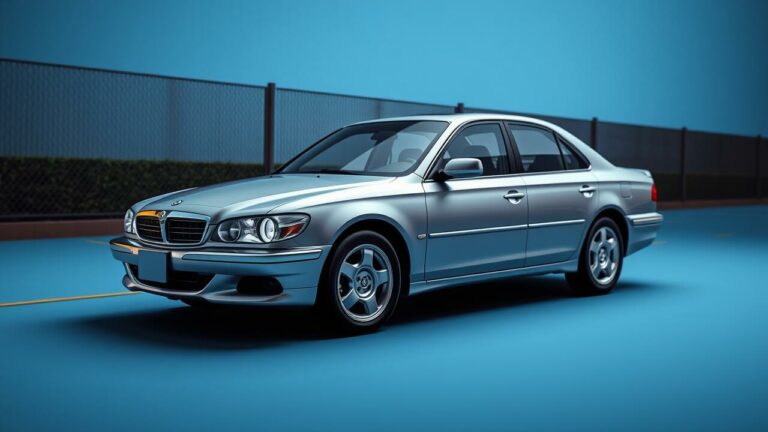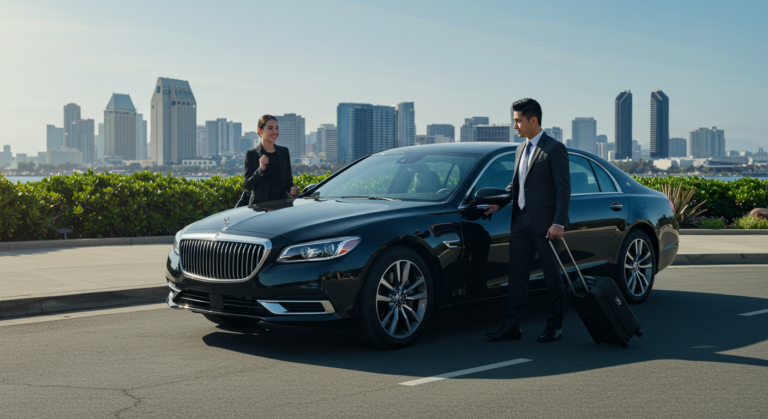Advantages and Disadvantages of Full size Sedans
Table Of Contents
Understanding the Advantages and Disadvantages of Full Size Sedans
Key Takeaways
- Benefits and drawbacks of large sedans are essential to comprehend.
- Positive aspects of full-sized sedans enhance driving experience.
- Negative factors of full-sized sedans can impact ownership.
- Comparison between large and medium-sized sedans highlights distinctions.
Advantages And Disadvantages Of Full Size Sedans | Understanding FullSize Sedans
Full-size sedans offer a unique blend of space and comfort, appealing to those who prioritize a larger car for family trips or long commutes. The advantages and disadvantages of full-size sedans become evident when comparing them to mid-size sedans. Full-size cars typically feature more room for passengers and cargo, making them an attractive option for families. However, potential buyers should consider that these larger sedans may come with downsides such as less fuel efficiency and challenges with maneuverability, especially in urban settings. While full-size sedans may provide ample comfort and advanced technology, they may not match the agility of compact sedans or mid-size SUVs, leading to varied preferences depending on individual driving needs and lifestyle choices.
Advantages and Disadvantages of Full size Sedans | Definition and Characteristics of FullSize Sedans
Full-size sedans are a popular choice among consumers seeking a blend of comfort, space, and performance. These vehicles typically feature a spacious interior that caters well to families, making them ideal family sedans. The advantages of full-size sedans include their roomy back seats and ample trunk space, which surpass what is usually offered by mid-size cars or smaller vehicles. Drivers often appreciate the more premium feel that comes with luxury cars in this category, enhancing their overall driving experience. While they may not have the compact agility of smaller cars or compact cars, full-size sedans offer a refined ride that appeals to many.
Despite their numerous advantages, full-size sedans also present some drawbacks. The size of these larger cars can lead to fuel efficiency concerns, especially compared to compact SUVs or smaller cars. Handling and maneuverability might also pose challenges compared to more agile vehicles like coupes or high-performance vehicles. For those accustomed to driving compact cars or smaller cars, transitioning to a full-size sedan might require some adjustment. Weighing the advantages and disadvantages of full-size sedans ensures that potential buyers make an informed decision tailored to their specific needs.
Comparison to MidSize Sedans
Full-size sedans and midsize cars each offer unique advantages and disadvantages. Full-size vehicles typically provide more interior space and comfort, making them ideal for families or those who appreciate a more spacious cabin. However, these heavier vehicles can be more challenging to navigate in tight parking lots compared to smaller cars. Midsize cars often have a more compact design, which can enhance maneuverability in urban environments. This makes them a popular choice for city dwellers who rely on car sharing or need to efficiently park in crowded areas.
The performance and driving experience also differ significantly between full-size sedans and midsize cars. Full-size models tend to prioritize comfort and luxury, often featuring advanced technology and amenities. On the other hand, midsize cars generally offer a balance of comfort and efficiency, catering to those who might be considering hybrid vehicles or alternative fuel options. Both vehicle types attract different consumers, with midsize models appealing to those who prefer a smaller footprint without sacrificing too much space, while full-size sedans cater to individuals seeking a larger, more accommodating vehicle.
| Feature | Full-Size Sedans | Midsize Sedans |
|---|---|---|
| Interior Space | More spacious, better for families | Compact, suitable for city driving |
| Maneuverability | Challenging in tight spaces | Easier to navigate in urban environments |
| Driving Experience | Comfort and luxury-driven | Balance of comfort and efficiency |
| Technology & Amenities | Advanced features often standard | Good features, less emphasis on luxury |
Advantages of FullSize Sedans
The advantages and disadvantages of full-size sedans are essential considerations for anyone engaging in car ownership. Large sedans often provide more space and comfort compared to standard size cars and many mid-size sedan options, making them appealing for families or individuals who value roominess. Many sedans today come equipped with advanced technology features, enhancing the driving experience and safety. The full-size vehicle market is also increasingly competitive, with new sedans incorporating attributes from high-performance sedans while still maintaining practicality. Although many SUVs capture public attention, the benefits of full-size vehicles, such as their smoother rides and spacious interiors, make them a compelling choice for many drivers looking for an alternative to sports cars. The diverse range of offerings in the full-size sedan market allows potential buyers to weigh the advantages and disadvantages of full size sedans before making a decision.
Spacious Interior and Comfort
Full-size vehicles stand out in their capacity to deliver spacious interiors and exceptional comfort, making them a favorable choice among traditional sedans. Compared to compact sedan class options or small SUVs, these vehicles often offer more legroom, headroom, and cargo space, which enhances the overall driving experience. This comfort is not just limited to passengers but extends to the driver as well, allowing for extended road trips without the fatigue often associated with tighter car-based SUVs. The generous interior layout is a significant advantage when considering the advantages and disadvantages of full-size sedans.
Many sedan models also incorporate advanced ergonomic designs and high-quality materials, making the cabin inviting and comfortable. Unlike top-heavy SUVs, which can sometimes compromise ride quality with their higher center of gravity, full-size sedans maintain a level of stability and smoothness that is appreciated by those who value a refined experience on the road. The spaciousness and comfort make them appealing choices for families or individuals seeking a more luxurious ride without stepping into several popular SUVs that may not meet all their needs. The balance of space and comfort in these conventional sedans showcases one of the key advantages of full-size vehicles.
Advanced Technology Features
Full-sized vehicles are increasingly equipped with cutting-edge technology that significantly enhances the driving experience. Many car manufacturers incorporate advanced infotainment systems, including large touchscreens that facilitate easy access to navigation, music, and connectivity features. Door sedans often come with driver-assist technologies, which improve safety and convenience. While exploring the advantages and disadvantages of full-size sedans, it’s clear that their integration of technology stands out compared to the compact car market and standard car offerings.
The disparity in technological advancements between different car types is evident. Full-sized sedans typically offer features like adaptive cruise control, lane-keeping assist, and premium audio systems, appealing to those who prioritize modern conveniences. Although SUVs offer similar technology, the sedan bout presents a unique blend of features tailored for comfort and usability. While large vehicles can face challenges like fuel efficiency and handling, many car owners find the investment in a full-sized vehicle worthwhile given its tech capabilities, especially in comparison to compact vehicles and all-wheel drive SUVs.
Disadvantages of FullSize Sedans
The consideration of full-size sedans reveals notable disadvantages that many car consumers face. While this car type often boasts a spacious interior and numerous advantages, it falls short in fuel efficiency compared to its SUV counterparts. Many drivers may find that the handling and maneuverability of a full-size sedan can be cumbersome, especially in urban environments. In terms of performance, fuel-efficient SUV models and diesel SUVs often provide a better driving experience, especially for those who prioritize efficiency. As consumers weigh the advantages and disadvantages of full size sedans against other options, such as mid-size vehicles and higher-end vehicles, they often recognize that standard cars may not meet their needs as effectively as specialized vehicles like SUVs, which shine in versatility and practicality.
Fuel Efficiency Concerns
Fuel efficiency is often a significant concern when considering the advantages and disadvantages of full-size sedans. These vehicles tend to offer a combination of size and luxury that can sometimes come at the expense of gas mileage. As consumers increasingly look for budget-friendly car options, the shift towards performance-oriented vehicles has made full-size sedans less appealing for those prioritizing fuel economy. Many new car buyers may find that the costs associated with filling the tank for a larger sedan can quickly add up, especially compared to smaller vehicle categories like compact cars.
As automotive advancements continue to favor SUVs, many consumers are drawn to the practicality and perceived versatility of these larger vehicles. SUVs excel in space and capability but often come with increased costs associated with fuel consumption. For car enthusiasts who favor a specific driving experience, the choice of full-size sedans can be influenced by this fuel efficiency gap. The right car for next family needs may require careful consideration of these factors, especially as modern vehicles are designed with varying balances between comfort, performance, and efficiency.
Handling and Maneuverability Issues
Many drivers often face handling and maneuverability issues with full-size sedans, particularly due to their long car bodies. While these vehicles offer ample rear passenger space and comfort, the size allows for less agility when navigating tight spots or urban environments. Car shopping for a standard vehicle may lead to the consideration of these disadvantages, especially if the goal is a fuel-efficient car that can easily weave through city streets.
Car ownership of a full-size sedan can sometimes mean sacrificing the driving experience associated with smaller, high-performance driving models. While diesel-powered SUVs offer a different driving dynamic, full-size sedans can feel cumbersome in relation to their size and design. This car choice can impact your overall satisfaction, especially for those who prefer a more basic car that prioritizes driveability. Ultimately, understanding the advantages and disadvantages of full-size sedans is crucial for potential buyers.
FullSize Sedans vs. MidSize Sedans
The comparison between full-size sedans and mid-size sedans reveals notable distinctions that can influence a car buyer’s next car purchase. Full-size sedans typically offer a more spacious interior, accommodating passengers and cargo comfortably; however, this size comes with its own set of advantages and disadvantages of full-size sedans. While modern minivans provide ample room, they often lack the sleek appeal that a full-size sedan can offer. Budget-conscious buyers seeking a new vehicle might find mid-size sedans more attractive due to their compact size and improved fuel efficiency, addressing concerns like the limited driving range that larger vehicles present. Electric car models in both categories are gaining popularity, but the mean SUVs gulp more from the fuel tank compared to their sedan counterparts. Ultimately, the choice hinges on personal priorities, whether one values extensive passenger space or a more budget-friendly starter car. Vehicle-related discussions often highlight these differences, guiding buyers toward the right decision for their needs.
- Full-size sedans generally provide more legroom and trunk space than mid-size sedans.
- Mid-size sedans often have lower starting prices and better fuel efficiency.
- Full-size sedans can have more premium features and technology options.
- Mid-size sedans are typically easier to maneuver in tight spaces and crowded urban areas.
- Full-size sedans may offer better ride comfort on long journeys due to their larger size.
- Mid-size sedans are popular among younger buyers for their balance of space and affordability.
- Buyers should consider their typical usage, such as family size and commuting distance, when making a choice.
Size and Space Considerations
Full-size sedans typically offer spacious passenger areas that cater to both driver and passengers. The ample rear-seat legroom and width create a comfortable environment for long journeys. Automotive enthusiasts appreciate how these vehicles often combine luxury features with powerful drives. However, the size range of full-size sedans can sometimes lead to limited trunk space, which may pose a challenge for those needing to carry large loads. This factor plays into the overall advantages and disadvantages of full-size sedans, particularly for families or individuals requiring significant cargo capacity.
Compared to mid-size sedans, full-size models provide distinct advantages in terms of space. Owners looking for a reliable car with robust features will find that these sedans accommodate more passengers comfortably. This is especially beneficial in scenarios where rear passengers frequent travel, highlighting rear-seat design as a priority. Yet, one should also consider the implications of traditional car ownership versus options like car subscription services, which can offer flexibility without committing to a specific vehicle with rear-wheel drive systems. Understanding these factors can help consumers better navigate the advantages and disadvantages of full-size sedans.
Performance and Driving Experience
Full-size sedans present unique advantages in terms of performance and driving experience compared to traditional vehicles. Their longer wheelbases contribute to stability and comfort, allowing for a lavish driving experience that is particularly beneficial for rear-seat passengers. These sedans often cater to passengers who value spacious rear seats and ample rear cargo space. While they may not rival some sportier models in outright performance, the overall driving dynamics offer a smooth ride ideal for long journeys, making them excellent choices for families and individuals who utilize car-sharing programs.
However, the driving ranges of full-size sedans can be affected by their size and weight, particularly in comparison to lighter, mid-size models. While full-size sedans may not boast a clear fuel-efficiency advantage, they compensate with awesome advantages like all-wheel drive (AWD) options for better traction in varying conditions. Parking needs can also be a significant consideration, as maneuvering these larger vehicles in tight spaces may present challenges that smaller sedans do not face. Evaluating the advantages and disadvantages of full-size sedans helps potential buyers make informed choices about their current vehicle needs.
Conclusion
Understanding the advantages and disadvantages of full-size sedans is crucial for those considering their next vehicle. These cars often boast spacious interiors and generous trunk capacity, making them ideal for families and long trips. Drivers appreciate the good driving position that offers a commanding view of the road, enhancing comfort on lengthy journeys. While some models may embody elements of muscle car representation, such as the Subaru Legacy Wagon, others focus on fuel efficiency. However, potential buyers must weigh these benefits against performance drawbacks, such as handling and maneuverability issues at high speeds. For particular drivers, the spacious passenger space can be a deciding factor, highlighting the need for a balanced assessment of the advantages and disadvantages of full-size sedans.
FAQS
What are the pros and cons of choosing full-size sedans over mid-size sedans when determining the ideal sedan size?
When considering the ideal sedan size, full-size sedans offer ample passenger space and comfort that appeals to many drivers preferring big cars. However, the full-size vehicle can be less maneuverable in tight areas compared to smaller cars. While full-size cars typically provide a more luxurious ride, they may also come with higher costs in terms of maintenance and fuel efficiency compared to their mid-size sedan market counterparts. Overall, evaluating various car types like full-sized vehicles against small cars is essential to make an informed decision about your next family sedan.
What are some of the key benefits of owning full size cars compared to other vehicle types like crossover vehicles and SUVs?
Full size cars, particularly sedan cars, offer several advantages over popular car types such as modern SUVs and many SUV models. For instance, full size vehicles typically provide a smoother ride, better fuel efficiency, and lower overall costs than expensive vehicles and SUVs. Additionally, an average sedan can be more practical for daily commuting, especially when considering limited passenger space or when car-sharing promotes sustainability. While full-sized vehicles—the cost of ownership may vary—often boast a larger trunk and more comfortable seating for passengers, making them an excellent option for those who prefer a big car affords them with space without the increased costs associated with SUVs.
How do full-size sedans compare to different vehicles like SUVs and crossover vehicles in terms of costs and advantages?
Full-sized vehicles often provide several advantages over smaller models or crossover vehicles, especially when considering the costs associated with owning a car outright. While SUVs shine in terms of space and off-road capabilities, four-door sedans can be more economical. For instance, the cost to maintain vehicles like full-size sedans is typically lower than that of many SUVs, which often increases costs due to larger tires and fuel consumption. Additionally, practical vehicles like sedans may offer better fuel efficiency compared to larger vehicles. However, depending on your needs, such as needing an AWD vehicle drive or the flexibility of car-sharing options, different vehicles can have their respective advantages. It’s essential to weigh the benefits of owning cars against your specific requirements.
What are the key differences in costs and benefits when comparing four-door sedans to several SUVs and how does car-sharing influence the choice of vehicle size?
When comparing four-door sedans to several SUVs, the costs can differ significantly. Full-sized vehicles—the cost of maintenance and fuel efficiency can be lower for four-door sedans than for SUVs, which often boast higher ownership expenses. Additionally, SUVs generally have larger sizes and more features, which increase costs. However, for those considering to own a car, these advantages could make certainly larger SUVs appealing, especially for families. Conversely, car-sharing allows access to several vehicles without the commitment of owning a vehicle outright, providing flexibility for those who do not need a full-sized vehicle—the and can impact decisions regarding whether to choose sedans or SUVs.
What are the main factors to consider when evaluating the cost differences between four-door sedans and SUVs, especially regarding the advantages of full-sized vehicles?
When evaluating the cost differences between four-door sedans and SUVs, it is important to consider that full-sized vehicles often provide many advantages such as greater passenger space and comfort. However, SUVs boast higher operational costs due to features like larger suv tires and fuel consumption. Additionally, while owning a car might seem convenient, the available car options and the overall basic car size can significantly influence vehicle costs. In terms of price comparisons, many vehicles increase costs when transitioning from smaller four-door sedans to larger SUVs.
What are the financial implications of choosing four-door sedans compared to jeeps and SUVs, especially considering how the cost of a full-sized vehicle varies in the context of owning a car or using car-sharing services in the realm of r/cars?
When evaluating the financial implications of four-door sedans versus jeeps and SUVs, it’s essential to consider that full-sized vehicles often come with higher initial costs but may provide better value in terms of space and comfort. In contrast, owning a car like a four-door sedan might offer lower operating costs compared to an SUV versus a jeep. Additionally, factors such as fuel efficiency and maintenance costs can impact your overall budget. In the context of using r/cars or car-sharing services, the decision may also shift based on how often you need a vehicle versus the cost of maintaining a vehicle that you own.
What are the financial considerations when deciding on owning four-door sedans versus opting for full-sized vehicles, especially in the context of using an own car?
When evaluating the financial aspects of owning four-door sedans versus full-sized vehicles, the cost plays a significant role. Full-sized vehicles—the cost can vary widely based on factors like model, maintenance, and fuel efficiency. Moreover, many buyers may contemplate whether to own an own car or consider alternatives, given that full-sized vehicles are not the only vehicles available that cater to varying needs and budgets.
What should I consider about four-door sedans and the cost of owning a full-sized vehicle?
When contemplating the choice between four-door sedans and a full-sized vehicle, the cost is a significant factor. Full-sized vehicles often have higher purchase prices, insurance rates, and maintenance costs compared to four-door sedans. It’s essential to evaluate your budget and how the cost of a full-sized vehicle will impact your overall expenses.
What should potential buyers evaluate regarding four-door sedans and the cost associated with full-sized vehicles?
When considering a full-sized vehicle, potential buyers should carefully evaluate four-door sedans, as they often present different advantages and comfort levels. The cost of ownership for a full-sized vehicle can vary significantly based on factors such as maintenance, insurance, and fuel efficiency, making it essential to weigh these aspects against the specific needs and budget of the buyer.
How do four-door sedans rank in cost-effectiveness when compared to a full-sized vehicle—the cost of ownership and maintenance?
When considering four-door sedans versus a full-sized vehicle, the cost can vary based on several factors, including fuel efficiency, insurance rates, and maintenance. Generally, four-door sedans may offer lower ownership costs compared to a full-sized vehicle—the cost of repairs and larger fuel consumption could make owning a full-sized vehicle more expensive overall.







